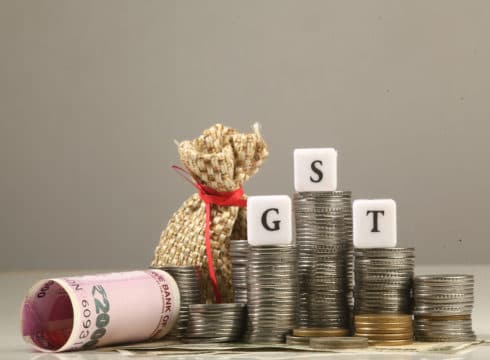The government has mandated ecommerce companies to collect tax at source from October 1
Players in this segment have requested for a provision for single registration instead of multiple state registrations
The provisions are aimed at keeping a check on tax evasion
Inc42 Daily Brief
Stay Ahead With Daily News & Analysis on India’s Tech & Startup Economy
Foreign ecommerce companies operating in India such as Amazon and Google, among many others will have to apply for Goods and Services Tax (GST) registration in all the states across the country separately in the next 10 to 12 days.
The central government has ruled that both Indian and foreign ecommerce companies are to collect tax at source from October 1, 2018.
Following this rule, companies in this segment have requested to the government to provide the option for a single registration instead of multiple registrations across states as the latter will increase their compliance costs.
However, the government maintains its decision for the companies to register separately in every state in the country.
Under this rule, notified entities will have to deduct up to 1% state GST and 1% central GST on intrastate supplies of over $3.46K (INR 2.5 Lakh).
In the case of interstate supplies for an amount over $3.46K (INR 2.5 Lakh), TDS will be 2% including GST.
These provisions are aimed at keeping a check on tax evasion as Tax Deducted at Source (TDS) and/or Tax Collected at Source (TCS) will leave a trail of transactions.
Further, there will be no TCS liability on a seller, based outside of India and is working on foreign ecommerce platforms.
All though, the provision mentions the rate as up to 1%, the current rates will be 0.5% each for state and central GST.
After the GST was implemented, the government had announced reduced taxes for household products such as chocolates, toothpaste, shampoo, washing powder, and shaving creams from 28% to 18%.
More products were shifted to a lower slab or fully exempted at the 26th GST Council Meeting held in March.
In line with this announcement, the Indian authorities wanted to confirm that whether ecommerce companies such as Amazon and Myntra are passing on these tax cut to consumers.
Understanding Goods and Services Tax (GST)
The Goods and Services Tax Act was passed in the Parliament in March 2017 and it came into effect from July 2017.
Under this act, GST had been explained as an indirect tax which is levied on the supply of goods and services and has also replaced certain indirect tax laws that existed before GST implementation.
According to reports, 5% GST is levied on household necessities such as edible oil, sugar, spices, tea, and coffee, life-saving drugs, 12% on computers and processed food.
Hair oil, toothpaste and soaps, capital goods and industrial intermediaries were placed under 18% GST tab whereas luxury items such as small cars, AC and refrigerators along with cigarettes and aerated drinks were included in 28% GST tab.
[The development was reported by ET]
{{#name}}{{name}}{{/name}}{{^name}}-{{/name}}
{{#description}}{{description}}...{{/description}}{{^description}}-{{/description}}
Note: We at Inc42 take our ethics very seriously. More information about it can be found here.


